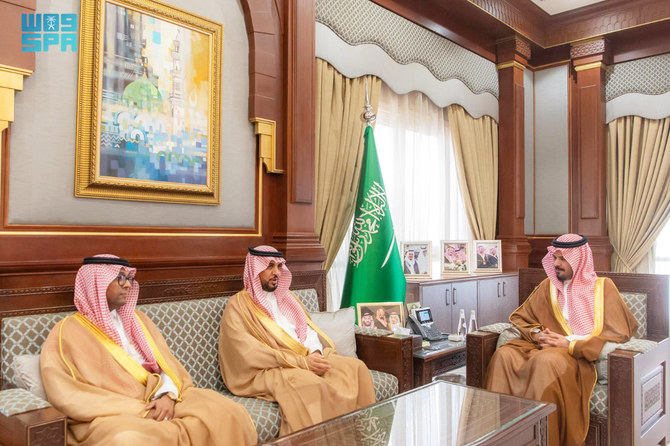MADINAH: Madinah Gov. Prince Salman bin Sultan received King Salman Medical City CEO Abdulrahman Al-Harbi in Madinah, the Saudi Press Agency reported on Wednesday.
Prince Salman congratulated the staff of the medical institute for obtaining accreditation from the Saudi Central Board for Accreditation of Healthcare Institutions.
He hailed recent advances in the health sector and encouraged staff to continue improving integrated health services.
Madinah governor cites King Salman Medical City’s for obtaining accreditation
https://arab.news/2ft7j
Madinah governor cites King Salman Medical City’s for obtaining accreditation

KSrelief sets emergency camp for Gazans displaced by severe weather

RIYADH: The King Salman Humanitarian Aid and Relief Center (KSrelief) has set up a new emergency camp in the central Gaza Strip, providing shelter to hundreds of families forced from their homes in recent weeks.
More than 250 tents have been installed to meet immediate needs, the Saudi Press Agency reported.
The camp was established after severe weather destroyed large numbers of temporary shelters across the area.
Aid workers say powerful storms and flooding have swept through central Gaza, flattening hundreds of tents and deepening an already severe humanitarian crisis.
Families who have taken shelter in the camp said the new tents have eased some of the immediate strain of displacement. After weeks of exposure to rain and cold, many said the shelters have offered basic protection and a degree of comfort as winter conditions continue.
The camp is part of broader Saudi led efforts to respond to urgent humanitarian needs in Gaza.














